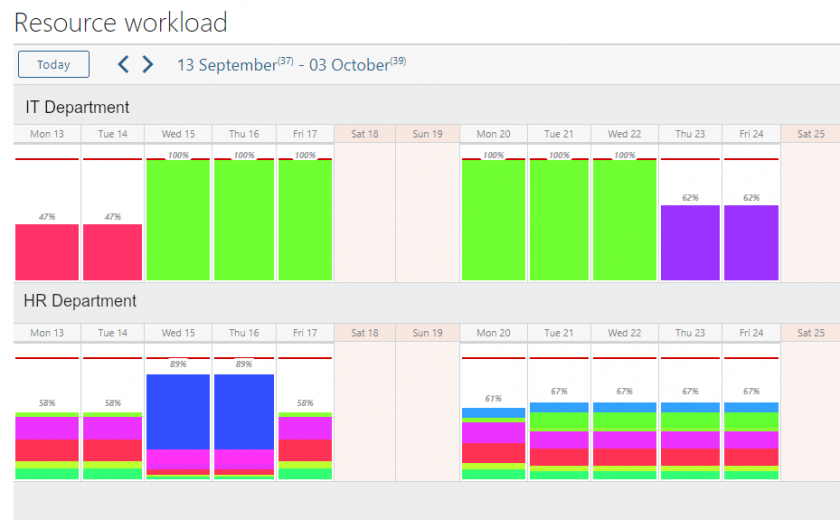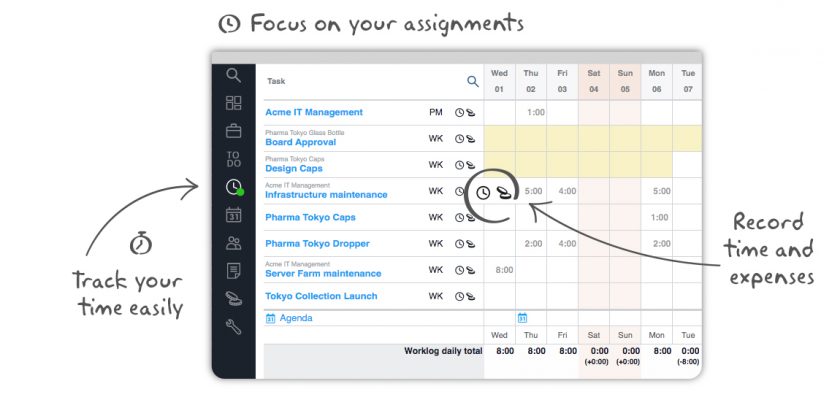Business operations represent the set of daily activities that enable an organization to function, grow, and create value.
From managing raw materials to delivering finished products, every stage requires careful planning, coordination, and control.
Thanks to its flexibility and process-oriented structure, Twproject can be the ideal tool to simplify and optimize every aspect of production and operations management.
CONTENT
What is meant by business operations?
Business operations can be divided into several main areas: procurement, production, logistics, administration, human resources management, and sales. Each area is closely connected to the others, and ineffective management in even one can hinder the whole production cycle.
For example, if the purchasing department does not monitor the delivery times of raw materials, production may halt, resulting in delays in the delivery of finished products and dissatisfaction among end customers.
Coordinating the production process efficiently
A well-structured operation begins with thorough planning. Using digital tools helps overcome department fragmentation, promoting a shared vision of the work.
In a production scenario, each order can be represented in Twproject as a project with tasks linked to the various operational phases (preparation, assembly, quality control). Assigning people, estimating times, documenting costs, and attaching documentation are possible for each activity.
The necessary capital goods (such as machinery or equipment) are managed as resources, with visible availability and configurable constraints. This prevents conflicts of use, overlaps, or unplanned downtime.
Although Twproject is not warehouse management software, it can still assist in reporting information related to the estimated availability of raw or critical goods, thanks to custom fields, tags, or notes shared within activities. This way, managers can consistently plan what is necessary to carry out operational duties.
Managing human and technical resources in operational work
In the day-to-day operations of a company, managing resources, people, tools, and equipment is one of the most demanding tasks. Business operations are based on the correct availability of production factors, which must be coordinated by time and space.
In Twproject, each resource, such as technical staff or capital goods, can be configured with availability constraints, assignments, and priorities. The system allows you to see the workload in real time and only plan tasks if related resources are actually available.

For example, suppose a task needs to be attended by an operator and specific equipment (like a machine). In that case, Twproject provides the option to check their availability in the operational calendar and flags any conflicts. This prevents overlaps or planning errors.
Thanks to custom fields, tags, or notes shared within task or project cards, Twproject can support operational departments in planning activities based on the estimated availability of materials.
Likewise, in the case of scheduled plant maintenance, it is possible to record the resource’s unavailability in the system, preventing it from being assigned to operational activities during that period.
In complex scenarios, where multiple departments share limited resources, Twproject allows managing future resource demand and easily viewing peak loads or saturations, facilitating proactive management of business operations.
Monitoring costs and financial resources
Financial control is another key aspect of business operations. Every activity has a cost, whether direct (e.g., hours worked) or indirect (e.g., use of infrastructure or equipment). Managing equity capital and debt capital requires visibility and traceability.
Twproject includes cutting-edge cost control features: each project can have a budget bound to time and resources. You can compare budget and actuals, track expenses, and collect hours worked with granularity, even based on hourly rates by role or department.

Generated reports provide a clear overview of the resources’ effectiveness, helping to identify deviations and inefficiencies. This approach provides the basis for data-driven decision-making and sustainable management of equity capital, while optimizing third-party capital use, if applicable.
When managed effectively, business operations help organizations grow stable and sustainable. The key is to convert complex processes into coordinated, measurable, and shared workflows.
Twproject supports this approach by providing a one-stop system for planning, allocating, and monitoring resources, time, and costs. It does not focus on warehouse or inventory management, but integrates seamlessly with all business activities’ operational and project management.




